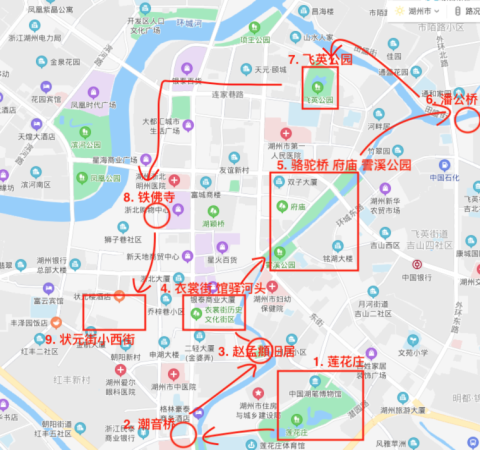
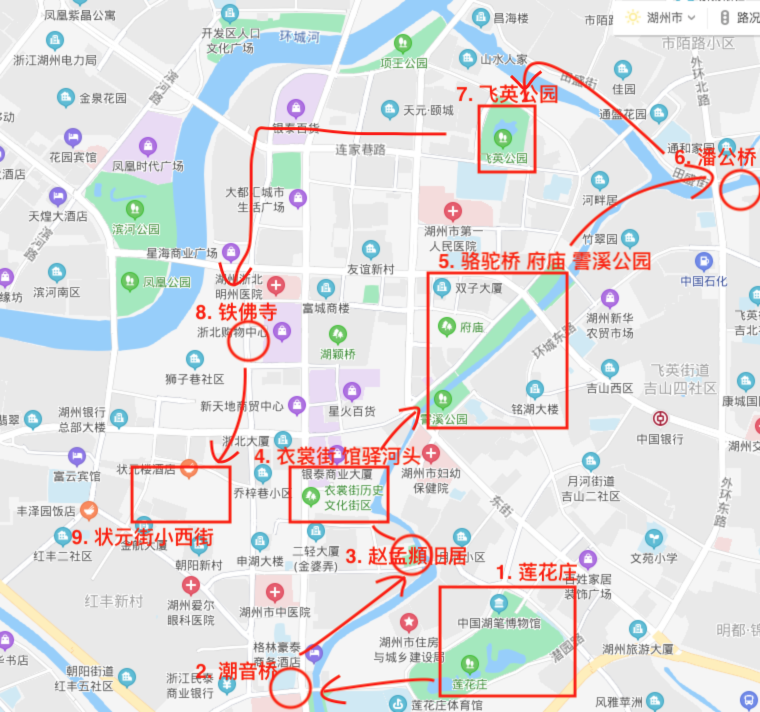

Camel Bridge, Fu Temple, Feixi Park
Turning northeast from the Yishang Street block, you can see several cute camel sculptures. Today, the Camel Bridge is a wide road that can be driven. Under the bridge is the Feixi River. Looking to the northeast is a colorful green road. riverside promenade. Su Shi once wrote a poem at that time: "Today I am anchored at the Camel Bridge, and I want to see the silver knife coming out of the repair net."
There was no fishing under the bridge today, but I heard the sound of splashing water. From a distance, it looked like someone was splashing in the water. I was startled and thought someone had fallen into the water! Taking a closer look, it turned out to be a device for filtering stream water.
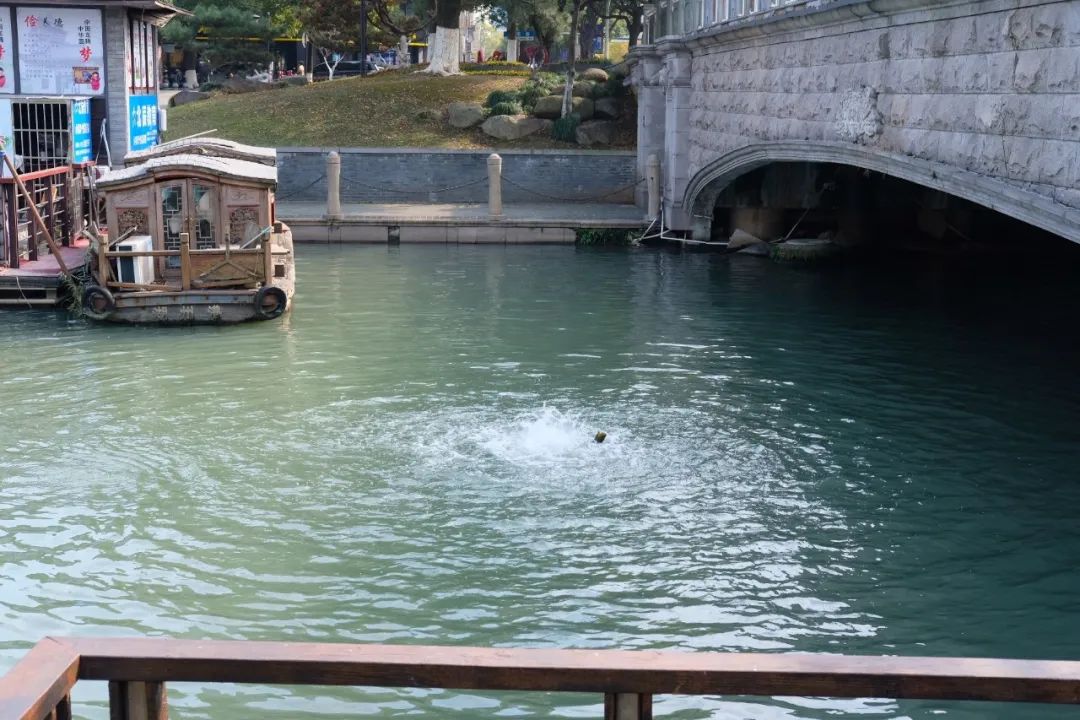
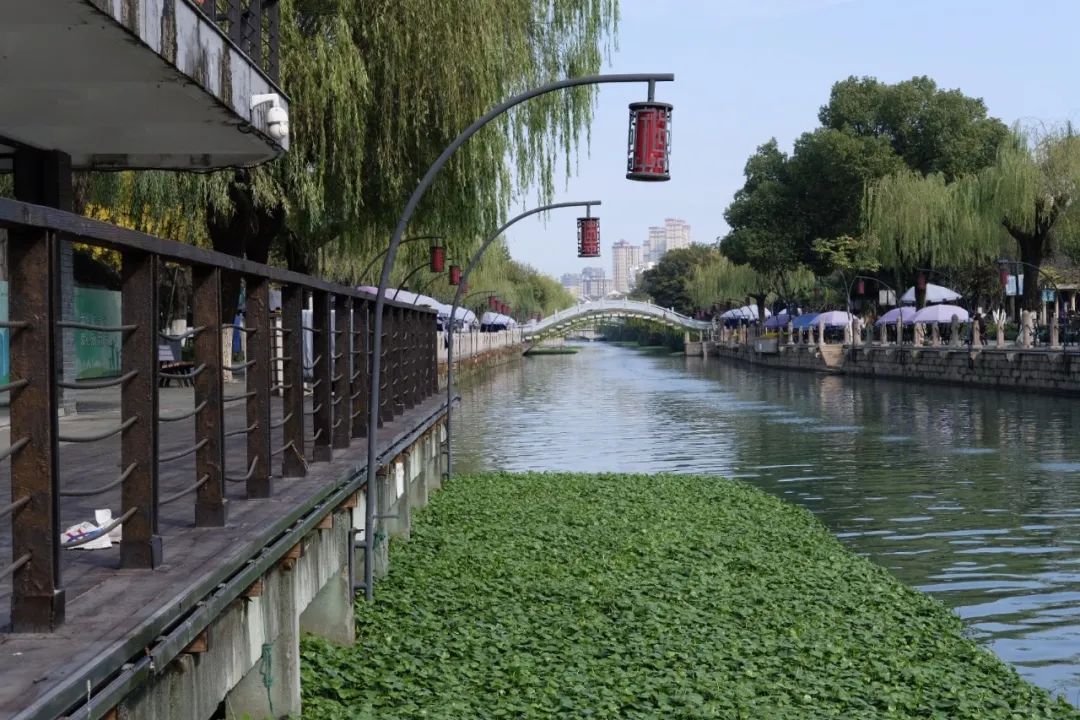
There was a pair of shoes on the shore. I almost shouted for help.
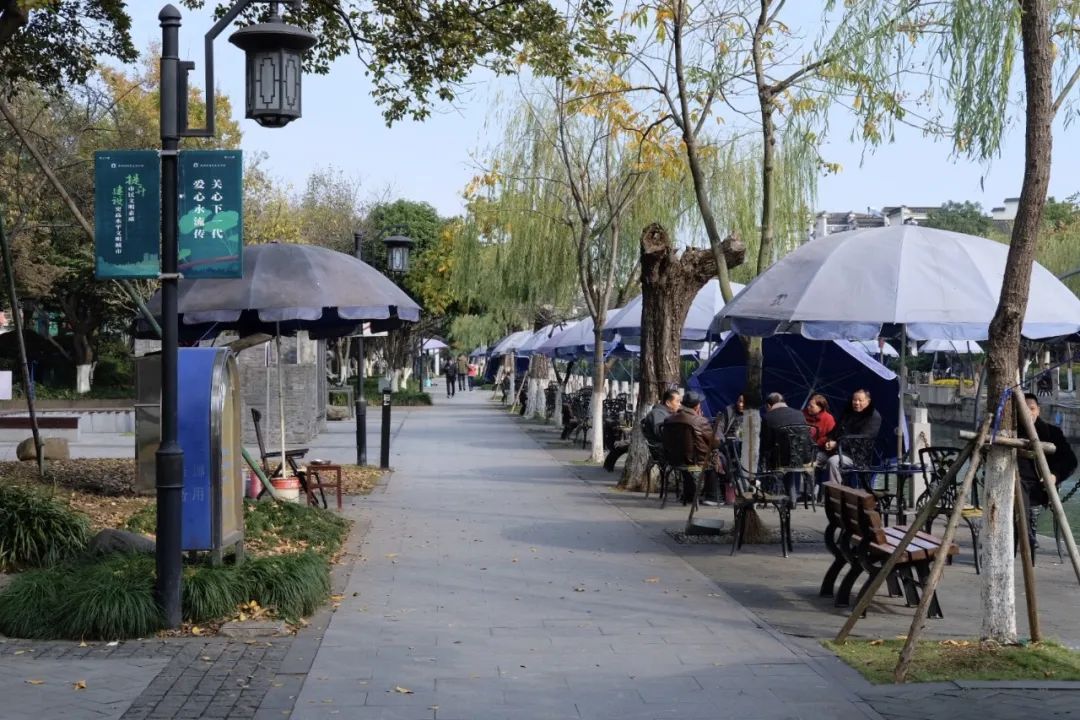
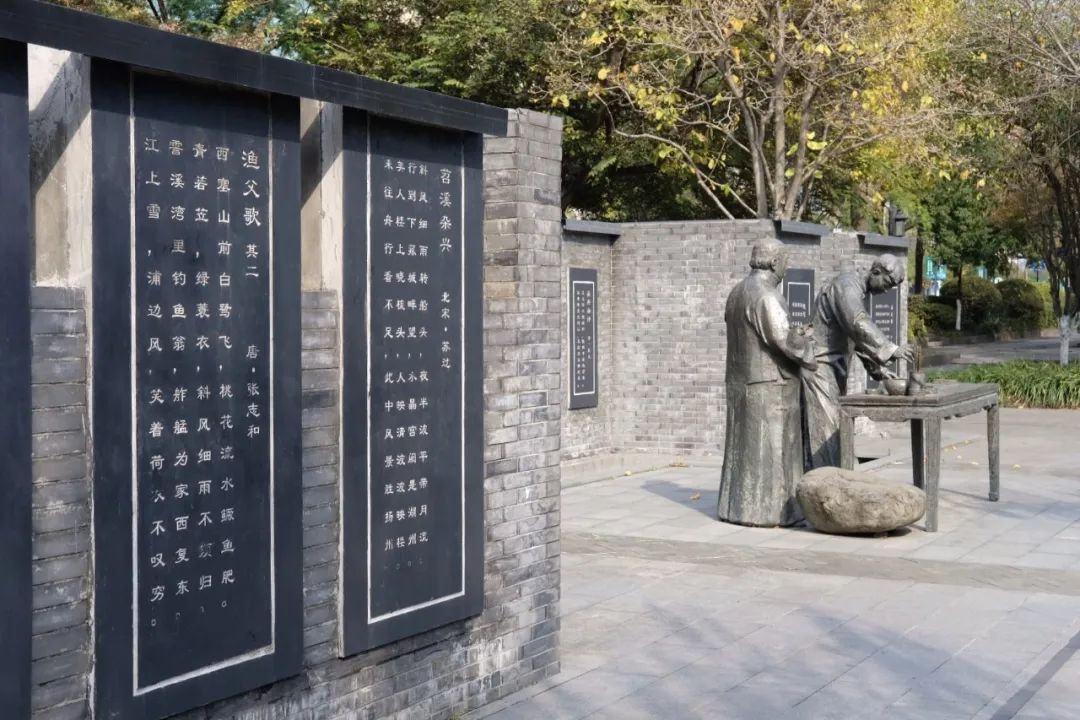
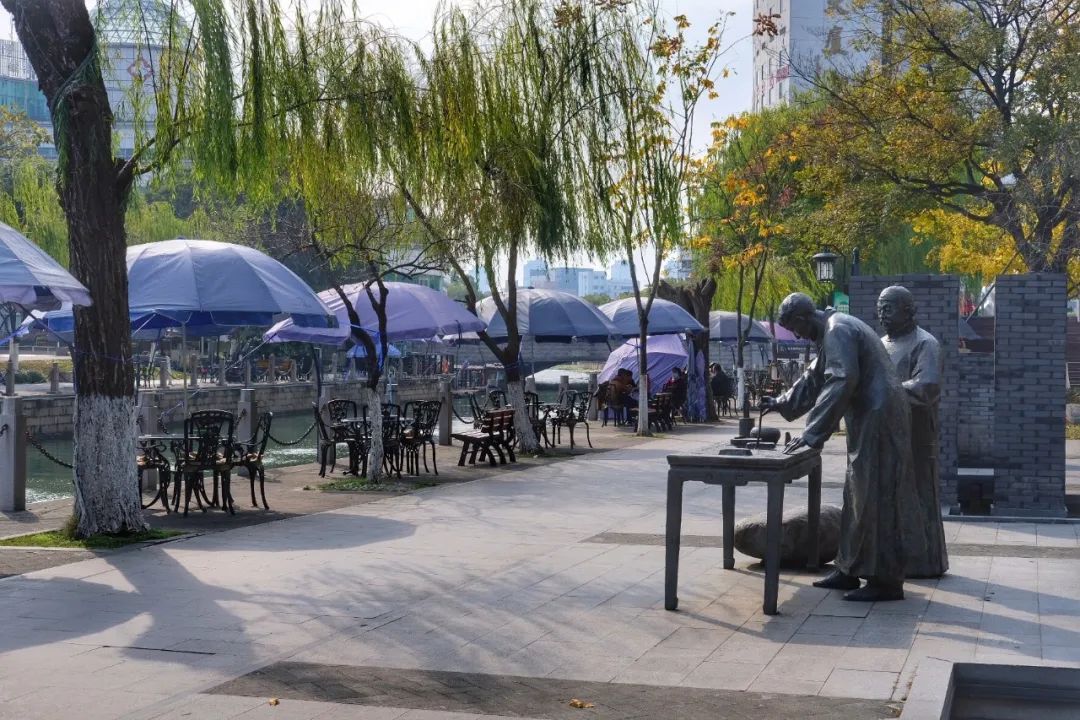
Huzhou people enjoy drinking tea, chatting and sunbathing.
There are many poems left by literati who passed by Feixi on the wall, some of which are interesting.
Fisherman's Song Part 2
【Tang Dynasty】Zhang Zhihe
In front of Xisai Mountain, egrets fly, and peach blossoms flow into the flowing water, where mandarin fish and mandarin fish are fat.
Green bamboo hat, green coir raincoat, slanting wind and drizzle do not need to return.
There are fishermen fishing in Peixi Bay, and their homes are from the west to the east.
There is snow on the river, wind beside the river, smiling and wearing clothes without sighing about poverty.
Tiaoxi Miscellaneous
【Northern Song Dynasty】Su Guo
The slanting wind and drizzle turned the bow of the boat, and the waves were flat with a moon current in the middle of the night.
Walking to the bank of Xiajiang City, you can see that the Crystal Palace is Huzhou.
The beauty is combing her hair at dawn upstairs, and the clear waves of people reflect on the tower.
There is not much to see in the boat trip, the scenery is better than Yangzhou.
The original works of these two poems are very long, and they were cut by the Huzhou Cultural Bureau. Su Guo (some say the author is Su Ling) quoted Zhang Zhihe's "Slanting Wind and Drizzle". "Tiaoxi Miscellaneous" actually has four poems, one in a row. Put two of them together and compare them with Yangzhou.
Huzhou accompanies the Grand Administrator to a banquet in the South Garden
【Qing Dynasty】Li Xuan
Nong's family grew up at the head of the green lake, and it was like swimming through the mirror while paddling.
It is strange that in those days, Bachelor Su lived in Hangzhou and could not live in Huzhou.
Bringing Su Shi together to compare with Hangzhou, this is not poetry, this is a real estate advertisement.
霅上
【Northern Song Dynasty】Su Shunqin
The beauties join hands with Qiuying, searching the pool and platform to see the moonlight.
Xiao Du has a spirit and should envy me. Now I am a leisure traveler.
I felt happy when I read the sentence "I am a leisurely guest now." Isn't this just talking about me? A leisurely traveler. Su Shunqin was the man who built Canglang Pavilion in Suzhou. The Xiao Du mentioned in the poem refers to Du Mu. The "beautiful man" in the first sentence comes from "On a moonlit night at the Twenty-Four Bridge, where can the beautiful woman teach flute playing?" It refers to the singing girl. What does "月生" mean? Woolen cloth? Du Mu would be envious of him joining hands with a beautiful woman. What happened? This reminds me of Du Mu’s gossip in Huzhou. This sexy story is quoted everywhere. Don’t Baidu this time, let me tell you.
When Du Mu was 35 years old, he was working as a staff member in Xuanzhou. He heard that there were many beauties in Huzhou and wanted to go there. The governor of Huzhou at that time was a good friend of Du Mu. Knowing that he was good at this, he specially organized a water play for him. At the meeting, men, women and children in the city came out to watch. Du Mu fell in love with a girl who was still held in her mother's hand. She was only thirteen years old and a stunning beauty. Du Mu made an agreement with his future mother-in-law to come back and marry her daughter in ten years. But when Du Mu came to Huzhou again, more than ten years had passed, and he still couldn't forget the girl. However, the beautiful woman had married early and gave birth to two children (some said three children). Du Mu was naturally very sad, and he still couldn't remember it. I wrote a poem called "Poetry of Sorrow", "Since I am late to go to school in search of spring, there is no need to be melancholy and complain about the fragrant weather. The strong wind has shed all the crimson leaves, and the green leaves have turned into shades and covered the branches."
Such a scumbag has the nerve to write poems, tsk tsk tsk, tsk tsk tsk, and also uses green leaves as shades and branches full of metaphors, discriminating against women. This incident should not be a legend, because later Li Shangyin and Su Dongpo both wrote poems "ridiculing" Du Mu's incident. Thinking of this, I wondered if what Su Shunqin said, "Little Du has a spirit and should envy me," was that Su Shunqin was holding a stunning beauty, and while walking, he met a singing girl named "Yue Sheng". At three years old, she is so delicate and charming... Du Mu will make you jealous to death!
The warm winter sun was so intoxicating that day that Du Mu had the spirit to hit me. He was so angry that he took out a song " After he was replaced on August 12, he moved to Feixi Pavilion because the title was a long sentence with four rhymes》:
Thousands of families are celebrating the coming of autumn, and there is the sound of singing and singing on every balcony.
The thousand-year-old crane still has hatred when he returns home. How can it be heartless to live with someone for a year?
At night, the monk left a message in Liangxi Pavilion, The wind settled in Sutan to watch the birth of the moon.
The scenery can only be seen when you climb up. I would like to be a leisurely guest and take a leisurely trip.
It turns out that this is the origin of "月生", not only the origin of "月生", Su Shunqin's poem completely quoted Du Mu's poem.
The word "Desi" in the title of Du's poem means the title given to officials in the Tang Dynasty when they were handed over from old to new. After a year as the governor of Huzhou, 47-year-old Du Mu was promoted and was about to go to Chang'an. He made the handover and had nothing to do. At night, the monk stayed at the Feixi Pavilion to talk and watch the moon rising on the Sugong Lake in the south of the Camel Bridge. He was light and free. The scenery of Huzhou finally took on a leisurely flavor. He left with the thousand-year-old Feihe who was watching over the thousand-year-old flying crane in his hometown. With hatred (the story in God’s Postscript), how can a person living in Huzhou for a year not have feelings?
"Did you know that two years later, I would also die of illness." Du Mu said.
Before I left Huzhou, I saw the poem "Xian" because I was tired from being an official. There is no word "tired" in the poem, but "Xian" is used to express the helplessness and reluctance after being exhausted . Although it was written more than a thousand years ago, it is exactly the same as the complex emotions that modern people have before changing jobs. Putting this poem in a farewell letter is full of resentment and emotion. After explaining all the bad things, there are still a few weeks left. I have nothing to do. If you have anything to do, ask me to take over and let him train. I will also continue to participate in department meetings, team building, and GA celebrations. I will listen to your singing and dancing on the balcony, and those noisy ones. The boring political struggle that had gone away no longer had the slightest ripples in my eyes. I was just a wanderer looking at the moonlight in the mirror. However, when I returned the access card, said goodbye to my old colleagues, I walked out of the office and looked back at the place. Going in and out of the gate, I still feel a lot of reluctance. It's really "a thousand-year-old crane still has hatred after returning, but how can it be heartless if a person lives there for a year".
Oh my god, where did I go?
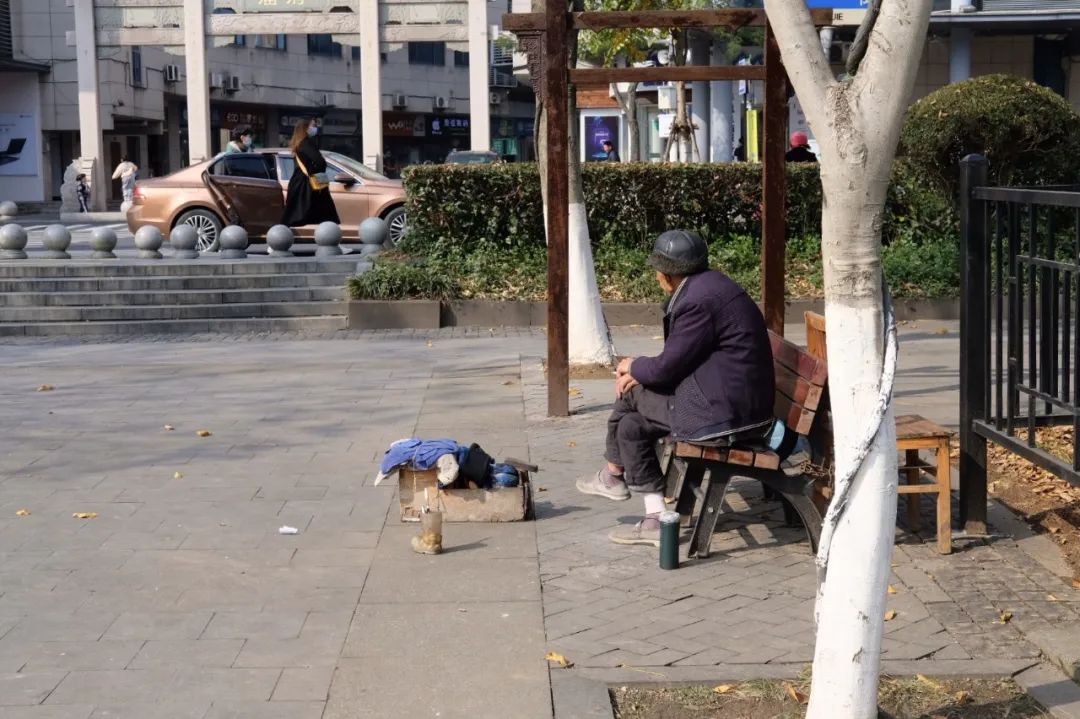
There are fortune tellers and shoe shiners in Feixi Park.
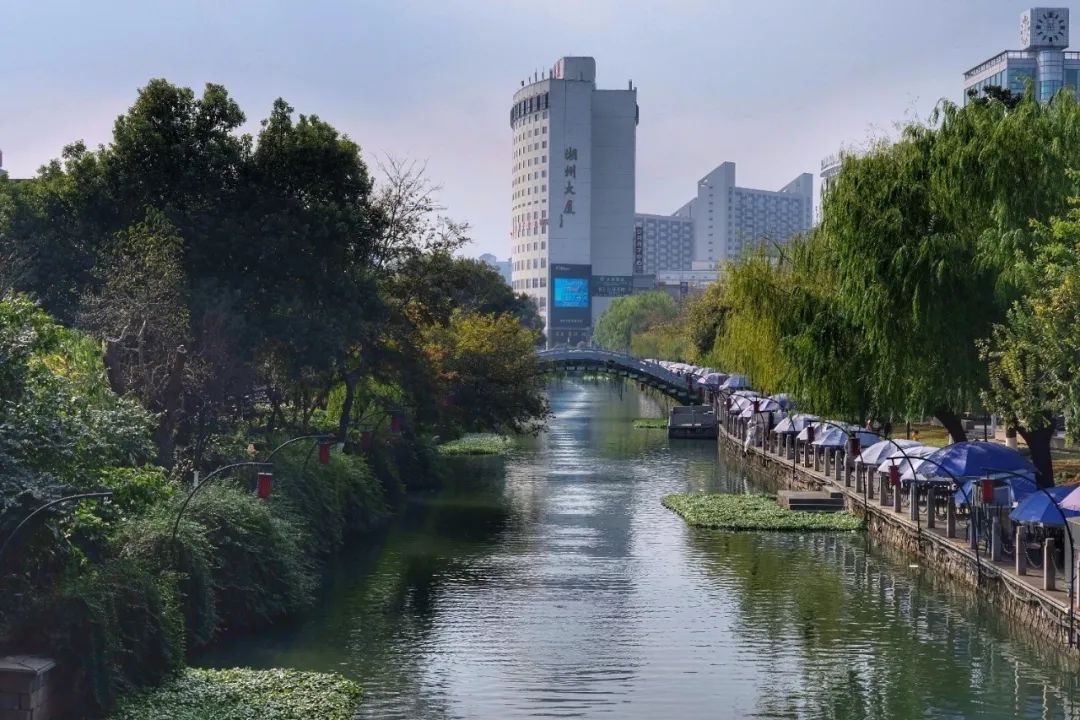
Go back towards Yishang Street
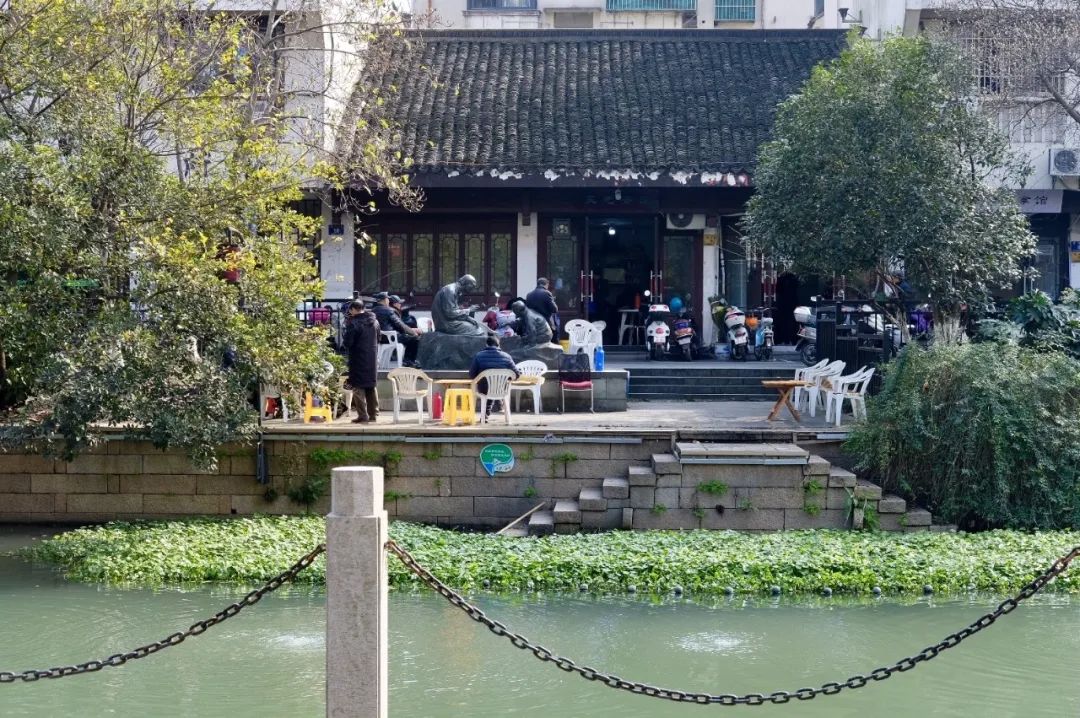
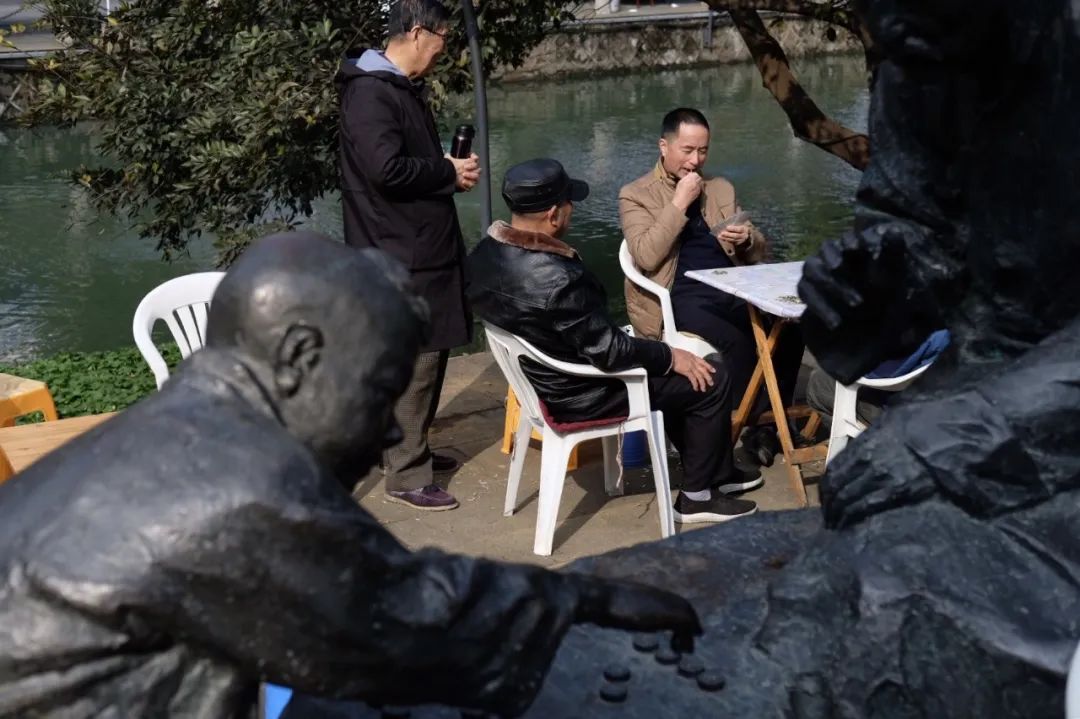
People on the other side played cards and cracked melon seeds leisurely
When I saw them, I couldn't help but go to the other side for another walk.
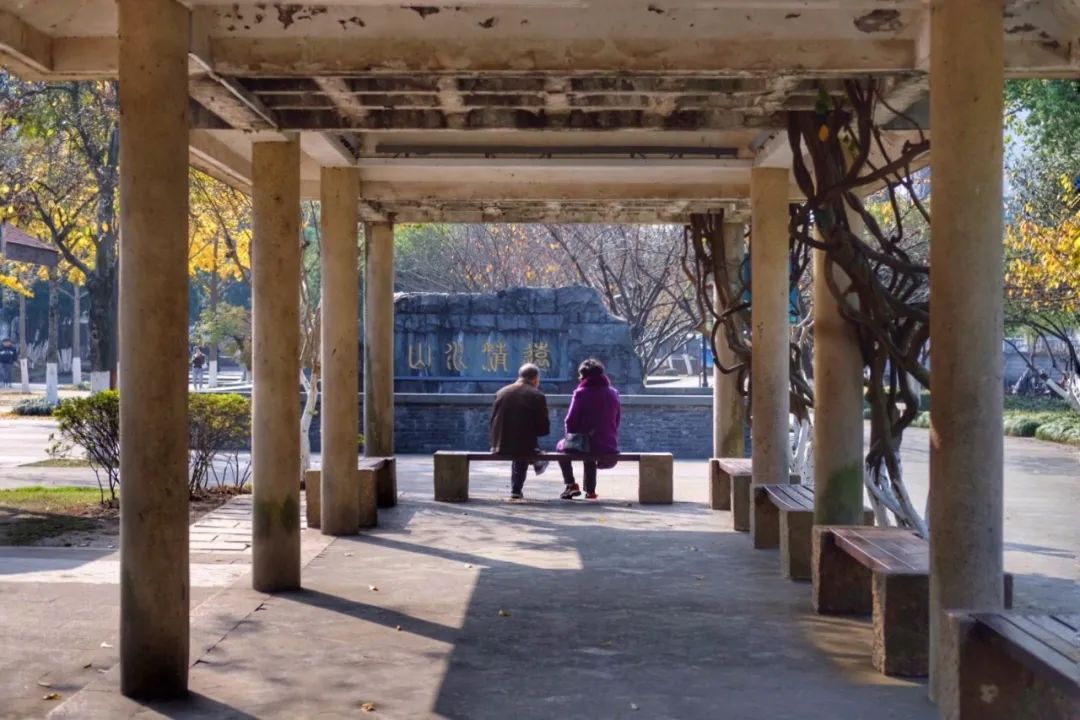
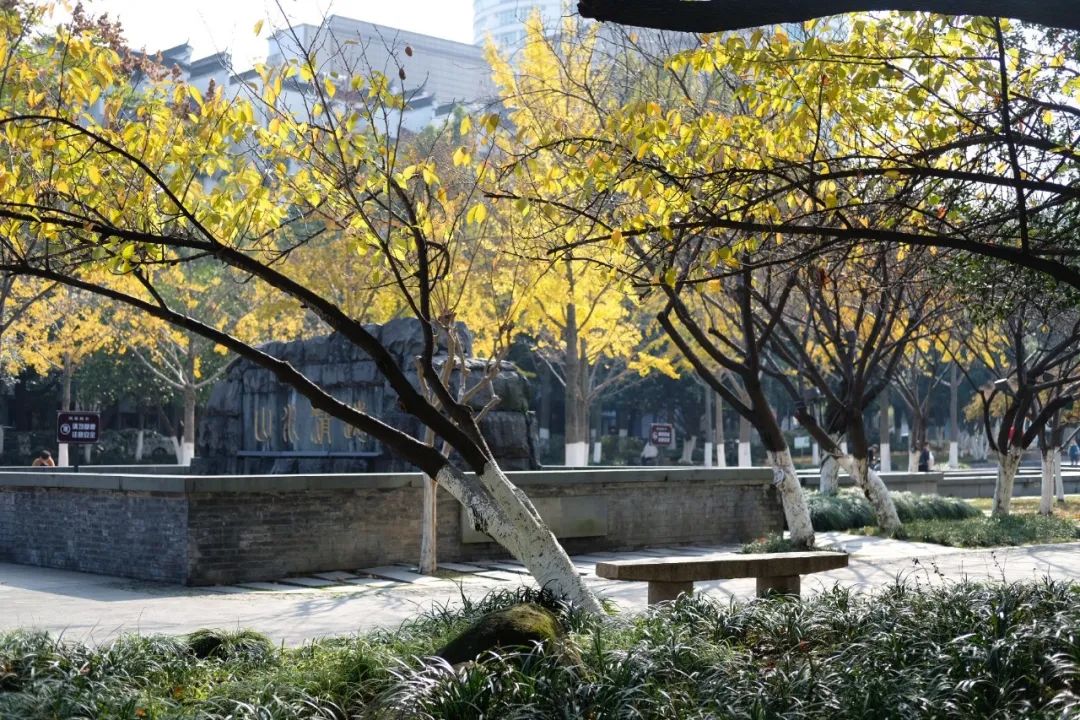
I have been searching for the origin of the four characters carved on the stone at the end of the corridor for a long time.
The characters mountain and water are both easy to recognize. I don’t know what the third and fourth characters are, love? source? ape? green? Is it the abbreviation for "Golden Mountains, Silver Mountains, Green Mountains and Green Waters"?
I was sitting on a stool basking in the sun. The ginkgo leaves in the distance had turned golden yellow. The leaves fell one by one, covering the grass in the park. Several children were playing on the grass, bursts of laughter, and the wind blew the willow trees behind me. There was a rustle on the shore, and I took out my thermos cup. People in Huzhou drink tea, but I can only drink plain water. Finally I found the words "mountains and rivers are clear and far away". In the fifth year of Xining (AD 1072), Su Shi came to Huzhou for the second time and wrote "The Story of Mo Miao Pavilion", the second paragraph of which:
"Wuxing has been a good place since the Eastern Jin Dynasty, and it was named with clear mountains and clear distances . Its people are satisfied with the benefits of fish, rice and lotus flowers, and they ask for little but do not fight. Guests who are not special to the place will not come. Therefore, everyone who keeps The people in the county take things for granted by singing in a romantic manner and drinking from pots."
Su Shi said that Wuxing, Zhejiang Province has been the most beautiful place since the Eastern Jin Dynasty and is known as the beautiful scenery. The local people live a prosperous life by fishing, planting rice, and harvesting lotus seeds and cattails. They have little greed and have no struggle with the world. Guests generally don't come here unless they have something urgent to do. Therefore, most of the previous county governors were romantic and carefree, and they usually regarded singing, writing poems, and drinking and playing games as their business.
It turns out that this is what it meant. The white water in the Xianke thermos cup also has a sweet taste.
